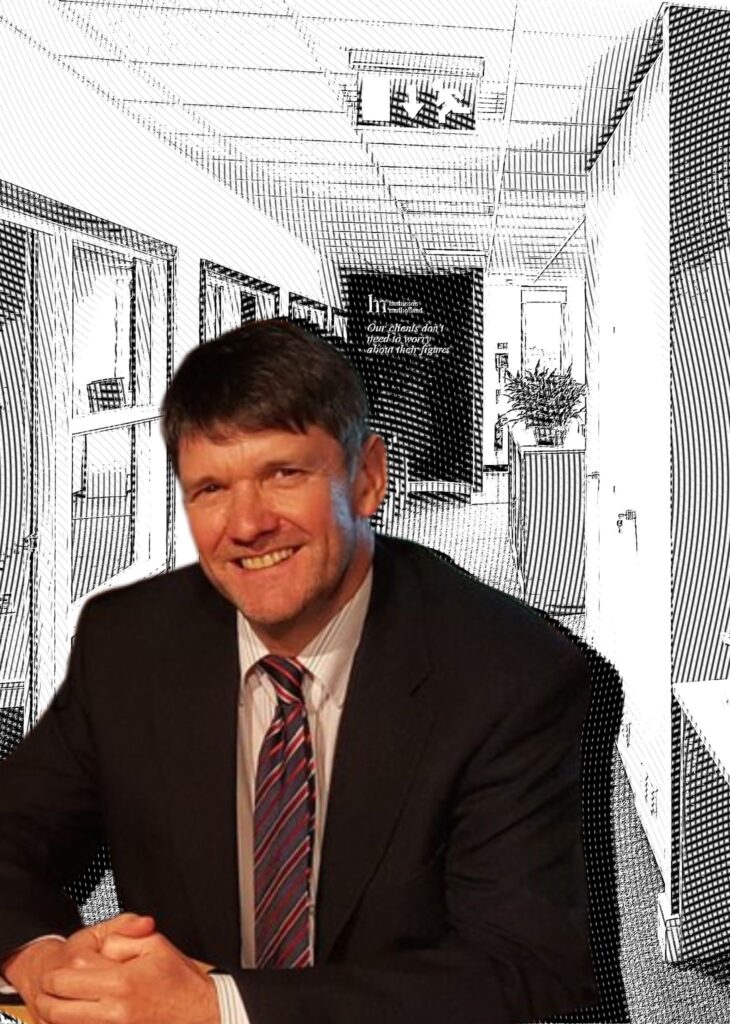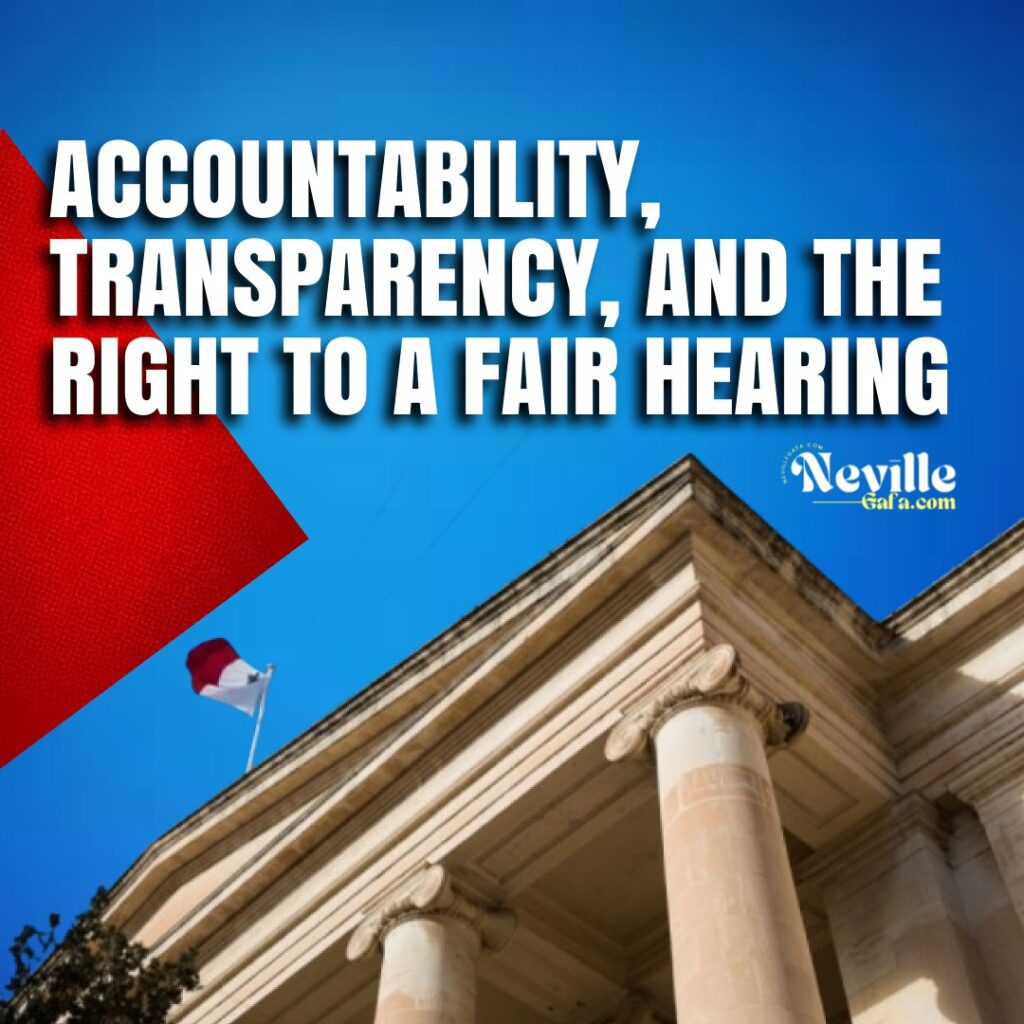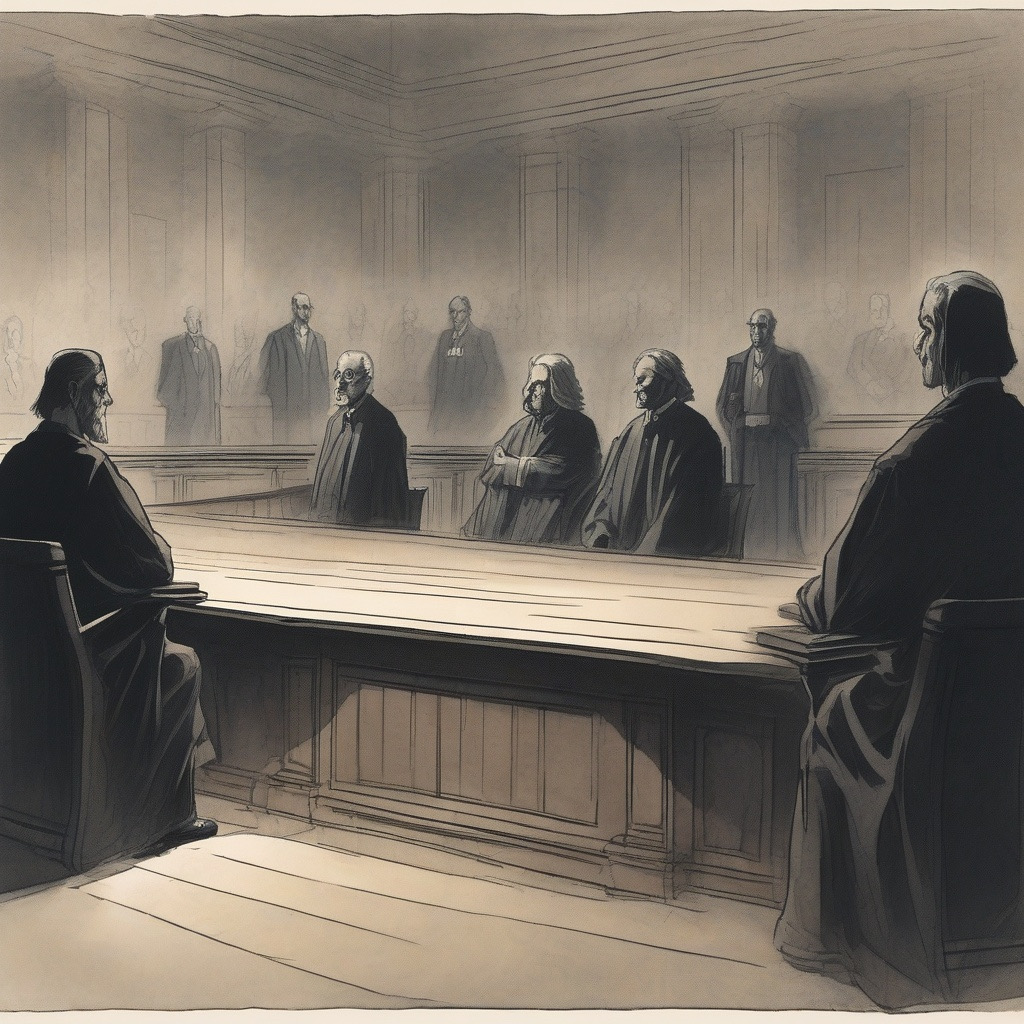The VGH saga has taken yet another contentious turn with the court note filed last Friday by forensic accountant Jeremy Harbinson. His refusal to appear in person to defend his €11 million report raises significant concerns about accountability, transparency, and the defendants’ right to a fair trial. As a court-appointed expert, Harbinson wields immense influence, and his actions—or lack thereof—demand rigorous scrutiny.

Jeremy Harbinson
The Role of a Court Expert: Accountability is Paramount
Court experts are entrusted with a critical responsibility: to provide impartial and authoritative analysis to assist the court in reaching a fair decision. For this, they are well-compensated, as Harbinson’s €11 million fee illustrates. With such remuneration comes an obligation to stand by one’s findings, especially in high-stakes cases like the VGH inquiry and the prosecutions that followed. Harbinson’s refusal to testify in person, after reportedly being summoned eight times, flouts this fundamental principle.
Harbinson’s apparent frustration at repeated summonses reveals a troubling mindset. What does he expect? A free pass to hurl serious allegations of fraud, submit a report rife with questionable assumptions, and avoid defending his conclusions under cross-examination? This is not how justice works. Accountability to the court and the parties involved is non-negotiable, particularly when a report carries such significant implications.

Fair Hearing and the Right to Challenge
The right to a fair hearing is a cornerstone of Maltese and European criminal law, enshrined in Article 6 of the European Convention on Human Rights. Central to this right is the ability of defendants to challenge the evidence against them. By refusing to appear in court, Harbinson denies defendants the opportunity to scrutinise his findings, question his methods, and expose potential flaws in his analysis.
Harbinson’s report, as the backbone of Magistrate Gabriella Vella’s inquiry, accuses VGH shareholders and government officials of fraud. Yet without the opportunity to cross-examine Harbinson, the defendants are left facing untested allegations. This undermines the credibility of the entire inquiry and raises serious questions about whether justice is being served.
By his own admission, Harbinson’s report was prepared with the assistance of “around thirty persons” over three years. This raises a host of troubling questions. Who are these individuals? Were they vetted by Magistrate Vella? Did the court authorise their involvement? Were potential conflicts of interest identified and addressed? None of this information is transparently documented in the inquiry, according to sources familiar with the proceedings. If true, this lack of oversight is a serious breach of procedural norms and a blow to the inquiry’s legitimacy.
The First Written Admission of Irregular Expert-Magistrate Interactions
Harbinson’s note contains a critical revelation: an admission that discussions and interactions occurred between the court-appointed experts and Magistrate Vella regarding the preparation of the report. This marks the first time a key player in the inquiry has confirmed such interactions, yet for reasons that remain highly suspicious, these discussions were not recorded, transcribed, nor documented in any formal manner.
This is a significant lapse on the part of the magistrate and lends credence to the growing perception that there is more than meets the eye when it comes to the inquiry’s conclusions and the motivations behind them. If these interactions shaped key decisions, why were they not transparently documented? The lack of records undermines confidence in the inquiry’s fairness and fuels speculation that political motivations influenced its course.

Harbinson Forensics: A Shell Company?
Harbinson Forensics: A Shell Company?
Another glaring issue is the role of Harbinson Forensics. Despite receiving €11 million for its work on the inquiry, the company reportedly has no employees and was recently put into liquidation. How, then, did this team of thirty experts materialise? Harbinson’s explanation—that this is the “process” used to prepare the report—raises more questions than it answers.
Were these assistants external contractors? If so, who vetted their qualifications and ensured their impartiality? Harbinson claims he personally prepared the results of the report, but if that is true, why hide behind the work of a shadowy team? This lack of clarity undermines confidence in the report’s findings and raises serious doubts about whether Harbinson Forensics was equipped to handle such a complex and sensitive investigation.

Opaque Interactions Between Experts and the Magistrate
The relationship between the court-appointed experts and Magistrate Vella is another area of concern. Sources familiar with the inquiry suggest that interactions between Harbinson’s team and the magistrate were irregular and opaque. The absence of documented approval for the methods employed casts a shadow over the inquiry’s procedural integrity. How can the public trust an inquiry when key processes are shrouded in secrecy?
If the methods used to prepare the report were indeed discussed and approved by the court, why is there no official record? Transparency in the court’s dealings with experts is crucial to maintaining the credibility of the judicial process. The lack of clarity in this case gives rise to suspicions that the inquiry is not as impartial or robust as it should be.
Harbinson’s Avoidance Undermines the Inquiry
Harbinson’s refusal to testify and the unanswered questions surrounding his report and team cast a long shadow over the VGH inquiry. His actions appear to prioritise evasion over accountability, leaving defendants to grapple with a report they cannot effectively challenge. This is a fundamental violation of their rights under Maltese and European law.
Moreover, the opaque nature of the inquiry’s processes damages public confidence in the judiciary. The VGH case is not just about holding individuals accountable for alleged fraud—it is also a test of Malta’s ability to conduct fair, transparent, and impartial legal proceedings. Harbinson’s behaviour, coupled with the inquiry’s procedural shortcomings, risks turning this case into a spectacle rather than a genuine pursuit of justice.
Justice Demands Accountability
The €11 million Harbinson report is a cornerstone of the VGH inquiry, but its foundations are shaky. The written admission of undocumented interactions between experts and Magistrate Vella, Harbinson’s refusal to testify, and the unanswered questions surrounding his team undermine the integrity of the judicial process.
Transparency and accountability are non-negotiable. The Maltese public deserves answers, not secrecy. Harbinson must appear in person to defend his findings, and the inquiry must address the procedural lapses that have marred this case. Anything less risks eroding public trust in Malta’s institutions and denying defendants their fundamental right to a fair trial. Harbinson, the time for hiding is over.






1 Comment
Keep this up Neville we want to know who framed JM.